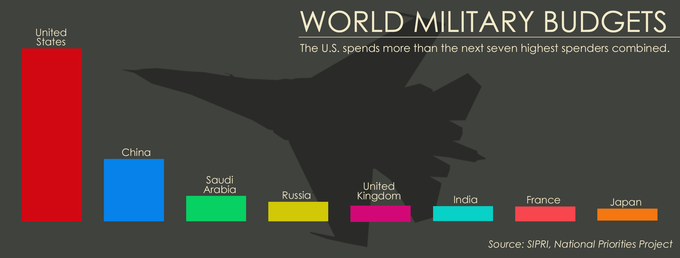
NDAA Conferees to Meet Today
Members of the Senate and House Armed Services Committees formally begin the conference process
(September 18, 2019) — The Senate and House conferees for the National Defense Authorization Act (NDAA) for Fiscal Year 2020 will meet tomorrow to begin the conference process. Known as the “pass the gavel” meeting, the event is the first meeting of NDAA conferees, who will work together to resolve differences between the House and Senate versions of the defense authorization bill.
Each year, the chairmanship of the NDAA conference committee alternates between the two chambers. This year, the Senate Armed Services Committee (SASC) will pass the gavel to the House Armed Services Committee (HASC).
The working portion of the “pass the gavel” meeting is closed to the press. However, the leaders of the Senate and House Armed Services Committees will host a brief, joint media availability prior to the meeting.
The NDAA authorizes and provides authorities for the U.S. military and other critical national defense priorities, and ensures our troops have what they need to defend our nation. Congress has passed the NDAA for 58 straight years.
WHO: Sen. Inhofe (R-Okla.), Sen. Reed (D-R.I.), Rep. Smith (D-Wash.), Rep. Thornberry (R-Texas)
WHAT: Media Availability ahead of NDAA Conference Committee Meeting
WHEN: Thursday, September 19, 2019 – 9:50 AM
WHERE: SD-G50 Foyer, Dirksen Senate Office Building

Defense Spending Bill Hits Border Wall in Senate
Leo Shane III and Joe Gould / Defense News
WASHINGTON (September 18, 2019) — Senate Democrats on Wednesday blocked Republican plans to advance an appropriations package including $693 billion in defense spending for fiscal 2020, all but assuring that lawmakers will have to adopt a short-term budget extension in coming days to avoid a possible government shutdown.
That means defense planners will likely start another fiscal year without clear answers on their military spending priorities and flexibility. House Democratic leaders said they expect later this week to take up a continuing resolution to keep the government open through Nov. 21.
The Senate motion to advance the appropriations package failed 51-44. The package needed 60 votes to proceed.
The latest budget impasse comes despite Congress reaching a bipartisan, two-year, $2.7 trillion budget deal in July which set funding levels for defense and non-military programs, an agreement many hoped would avoid piecemeal spending plans for fiscal 2020.
But President Donald Trump’s decision earlier this month to shift $3.6 billion in defense spending away from military construction projects to his controversial southern border wall project shifted the uncertain political comity underpinning that agreement.
Senate Majority Leader Mitch McConnell, R-Ky., on Wednesday accused Democrats of shoehorning their dispute on immigration into debate on defense spending.
“In a world this dangerous, uncertain funding and continuing resolutions will not cut it for our national defense,” McConnell said. “Our men and women in uniform do not deserve to have the funding for their tools, their training, and their own pay raises used as leverage by Senate Democrats to try and extract concessions from the White House.”
Democrats have bristled at that criticism and said Trump’s funding shifts amount to theft from the military, and have demanded that McConnell renegotiate with the White House to exclude as much as $12 billion diverted to the wall from future defense spending.

“Somehow in the wake of all this, the Republican leader has been accusing Democrats of threatening to block military funding,” said Senate Minority Leader Chuck Schumer, D-N.Y. “That is an absurd statement if there ever was one.
“We’re simply trying to stop Republicans from stealing the money from our military and putting it into the wall which [Trump] said Mexico would pay for.”
Defense leaders have repeatedly pleaded with lawmakers in recent years to finalize the full-year military budget by the start of the new fiscal year (Oct. 1) to prevent disruptions in weapons purchases, new program starts and a host of other Pentagon operations.
But Democrats have been reluctant to fund defense on its own in recent years amid fears that it will remove leverage in budget negotiations, allowing Republicans to abandon agreements for increases in non-military spending once the armed forces are taken care of.
Last week, Democrats in the Senate Appropriations Committee voted against the Republican plan to allocate funding, and the panel’s Republican majority scuttled their amendment to bar DoD funds from going to the wall.
House Democratic leaders said they expect to take up a continuing resolution to keep the government open through Nov. 21 by later in the week.
That would give leaders of both parties another eight weeks to work out a broader appropriations plan while still avoiding a partial government shut down at the end of this month.
Posted in accordance with Title 17, Section 107, US Code, for noncommercial, educational purposes.